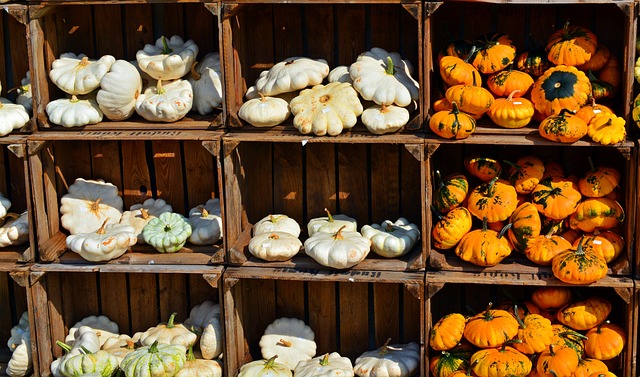Garden enthusiasts committed to sustainability can significantly improve environmental health by engaging in efficient composting of yard waste, which recycles organic matter from gardens and kitchens into nutrient-rich humus. This process not only supports soil biodiversity but also reduces the need for chemical fertilizers. Yard waste such as leaves, grass clippings, and branches are ideal for composting, helping to mitigate the environmental impact of garden maintenance. The right compost system, tailored to individual needs and local yard waste removal services, should be selected and managed carefully by maintaining the correct carbon-to-nitrogen ratio, keeping the pile moist, and turning it regularly to expedite decomposition into high-quality compost within a few months. Enhancing this sustainable cycle through community composting initiatives and yard waste recycling programs further benefits both personal gardens and the broader ecosystem. This holistic approach not only amends garden soil but also fosters a deeper connection with nature, advocating for responsible gardening practices that are environmentally beneficial and conscientious. Yard Waste Removal and Recycling play a pivotal role in this sustainable cycle, converting organic waste into valuable compost and diverting it from landfills.
Embark on a greener path with our comprehensive guide to compost creation for garden enthusiasts. This article delves into the art of transforming your yard waste into nutrient-rich compost, offering practical insights from the basics of organic matter to the intricacies of maintaining a balanced compost bin or pile. Learn how to efficiently recycle and remove yard waste, select the ideal setup for your space, understand the green-brown ratio, and integrate finished compost into your gardening routine. We also explore legal and environmental considerations, alternative methods for yard waste recycling, and tips to maximize soil fertility and enhance plant growth. Whether you’re a seasoned gardener or new to sustainable practices, this guide will equip you with the knowledge to enrich your garden and contribute to eco-friendly yard waste removal and recycling.
- Efficient Composting for Garden Enthusiasts: Harnessing Yard Waste Removal and Recycling
- Understanding the Basics of Organic Matter in Compost Creation
- Selecting the Ideal Compost Bin or Pile for Your Yard's Space and Needs
Efficient Composting for Garden Enthusiasts: Harnessing Yard Waste Removal and Recycling

For garden enthusiasts committed to sustainable practices, efficient composting represents a pivotal approach to harnessing yard waste removal and recycling. By integrating organic matter from gardens, kitchen scraps, and other biodegradable materials, gardeners can significantly reduce the volume of waste sent to landfills while enriching their soil. Yard waste, such as fallen leaves, grass clippings, and pruned branches, is particularly abundant and ideal for composting. Implementing a systematic yard waste removal process ensures that these materials are collected effectively, minimizing the impact of garden maintenance on the environment. The decomposition process not only transforms this waste into nutrient-rich humus but also supports soil biodiversity by introducing beneficial microorganisms and reducing the need for chemical fertilizers. Recycling yard waste through composting creates a sustainable cycle that benefits both the garden and the wider ecosystem, promoting plant growth and contributing to carbon sequestration.
To maximize the benefits of composting, garden enthusiasts should consider adopting a balanced composting strategy. This includes selecting an appropriate composting system based on available space, the amount of yard waste generated, and personal preference. A well-managed compost pile or bin, with regular turning and adequate moisture levels, can accelerate the decomposition process and produce high-quality compost within a few months. Additionally, understanding the carbon to nitrogen (C:N) ratio is crucial for efficient composting; a balanced mix of ‘greens’ (high in nitrogen) and ‘browns’ (high in carbon) ensures optimal microbial activity. By engaging with local yard waste removal services for bulk pick-ups or community composting initiatives, gardeners can further streamline the process and contribute to collective sustainability efforts. These practices not only enhance the health of gardens but also foster a connection with the natural world, promoting a holistic approach to gardening that is both rewarding and environmentally responsible.
Understanding the Basics of Organic Matter in Compost Creation

Garden enthusiasts looking to enhance their soil naturally can start by understanding the basics of organic matter in compost creation. Organic matter, the cornerstone of healthy compost, consists of once-living organisms and their byproducts. It includes a variety of materials such as food scraps, yard waste, and manure, which decompose over time to form humus, a rich, dark substance that improves soil structure and fertility. Yard waste removal and recycling play a pivotal role in this process, as grass clippings, leaves, branches, and other garden trimmings are excellent sources of organic matter. By incorporating these materials into a compost pile or bin, gardeners can reduce the amount of waste sent to landfills while simultaneously creating a nutrient-rich amendment for their gardens. The process of composting not only recycles organic material but also supports soil biodiversity by providing habitat and food for beneficial microorganisms, worms, and other organisms that contribute to the decomposition process and soil health.
To effectively recycle yard waste through composting, it’s important to balance ‘greens’ and ‘browns’. Greens, which are nitrogen-rich materials like kitchen scraps and green plants, provide moisture and heat to the compost pile. Browns, carbon-rich materials such as dry leaves, straw, and wood chips, add the necessary carbon that helps regulate the decomposition process. A well-balanced compost pile will heat up, indicating that microbial activity is breaking down the organic matter efficiently. Regular turning of the compost allows for even distribution of air and moisture, further aiding in the decomposition process. Yard waste removal and recycling through composting not only contributes to environmental sustainability but also yields a valuable resource that enriches garden soil, leading to more vibrant plant growth and reduced need for chemical fertilizers.
Selecting the Ideal Compost Bin or Pile for Your Yard's Space and Needs

Garden enthusiasts looking to enhance their yard’s soil health through composting have a variety of options for compost bin or pile selection. The ideal choice depends on the available space, local climate conditions, and specific waste removal and recycling needs. For small yards with limited space, tumbling compost bins are an excellent option as they are compact and easy to manage. These bins promote aeration and efficient decomposition, which can significantly accelerate the composting process. They also come with wheels for ease of movement if you need to reposition them for access or sun exposure. On the other hand, static compost bins are suitable for those who prefer a set location for their compost pile and have more space to accommodate it. These bins can be made from various materials like wood, plastic, or metal, and they often come in sizes that fit different yard dimensions.
When considering yard waste removal and recycling, it’s important to select a compost bin that not only fits your space but also complements the type of waste you intend to compost. Kitchen scraps, lawn clippings, and fallen leaves are common organic materials that can be composted. The chosen bin should have adequate capacity to handle the volume of waste you generate. Additionally, some regions offer municipal yard waste collection programs, which can influence the size and location of your composting system to ensure compliance with local regulations. Properly designed compost bins also facilitate airflow and moisture management, which are critical for effective decomposition and maintaining a balanced microbial environment. By selecting the right compost bin or pile for your yard’s specific needs, you can engage in efficient yard waste removal and recycling practices that contribute to a healthier garden ecosystem.
Garden enthusiasts have ample opportunities to enrich their soil sustainably through efficient composting, which leverages yard waste removal and recycling. By understanding the basics of organic matter in compost creation, gardeners can tailor their compost bins or piles to fit their available space and specific needs, ensuring a healthier garden ecosystem. This article has outlined key practices for effective composting, transforming your yard’s waste into valuable nutrients for your plants. Embrace the rewarding cycle of yard waste removal and recycling to foster a thriving garden while contributing to environmental stewardship.



